- 63 Lectures and Quizzes in the Foundation Courses (FC) by Dr. Elaine Ingham.
- Monthly Q&A Webinars with Dr. Elaine and other soil regeneration experts.
- Access to the FC Student Forum where your questions will be answered by Dr. Elaine and her team.
- Downloadable materials including: Course Manuals, Lecture Slides, Glossary, and more.
- The Certified Lab-Tech Program: 8 hours of Microscopy Training (one-on-one), plus Microscopy Assessment (usually priced at $1,000) FREE!
- Bonus Course 1: Introduction to Ecosystem Restoration (usually priced at $1,000) FREE!
- Bonus Course 2: Introduction to Permaculture by Graham Bell (18 lectures and Quizzes plus a dedicated Forum) (usually priced at $200) FREE!


What You Get
Ecosystem Restoration Bundle – Payment Plan – Part 1 of 3
$1,330
The Payment Plan comprises 3 payments of $1,330 USD.
With the first payment, you’ll get access to all of Foundation Course 1 (FC1), all of the Introduction to Permaculture Course (IPC) and all of the Introduction to Ecosystem Restoration Course (IER). PLEASE NOTE: The start date for the Introduction to Ecosystem Restoration (IER) has been delayed. It will commence on November 15, 2022.
With the second payment, you’ll get access to all of Foundation Course 2 (FC2) and half of Foundation Course 3 (FC3).
With the third payment, you’ll get access to the second half of Foundation Course 3 (FC3) and all of Foundation Course 4 (FC4).
Upon successful completion of the Foundation Courses, you will be eligible to enter the Certified Lab-Tech Program (CLP), which is included free with this bundle.
Click on Add To Cart to register for Part 1 of the Payment Plan.
What’s in the Bundle:
- All 4 Soil Food Web Foundation Courses
-
- Introduction to the Soil Food Web
- Making BioCompleteTM Compost
- Making BiocompleteTM Extracts and Teas
- Microscopy
- The Introduction to Ecosystem Restoration FREE!
- The Certified Lab-Tech Program FREE!
- The Introduction to Permaculture FREE!
The Soil Food Web Foundation Courses
Foundation Course 1: Introduction to the Soil Food Web
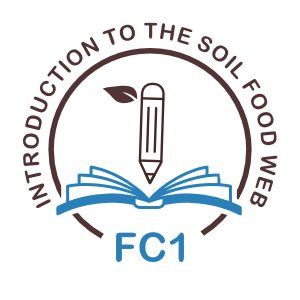
In Foundation Course 1 you will learn:
- About the damage that modern agriculture has done to soils all over the world.
- How Regenerative Agriculture is the soil-ution and how you can rapidly regenerate your soils with the Soil Food Web Approach.
- How the Soil Food Web Approach can be adopted on any scale and in almost any environment, with a multitude of crops.
- About the 4 major groups of Beneficial Microorganisms that are needed to restore ecosystem functions to your soil.
- How Beneficial Microbes work in harmony with your crops to nourish and protect them.
- How benefits such as increased yields, reduced erosion, reduced pest, disease and weed pressures etc. can be achieved.
- About several projects from around the world that Dr. Elaine Ingham has worked on personally.
- About some of the management practices you can adopt to ensure that the biology in your soils is not compromised.
- How soil structure is created by beneficial microbes, improving water infiltration in clay soils and better water retention in sandy soils. And how good structure enables plants and beneficial microbes to penetrate deep into the soil profile, improving plant health.
- How beneficial microbes access the abundance of nutrients stored in the parent material (think sand and clay particles) and how this is then made available to your plants.
- How plants influence the soil biome, by releasing sugary exudates that feed specific groups of beneficial microbes, in return for nutrients.
- How having a balanced soil biome can result in great benefits, such as Weed Suppression and Increased Carbon or Organic Matter content.
Foundation Course 2: Making BioComplete™ Compost
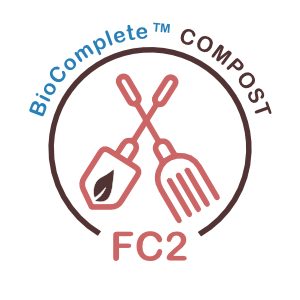
In Foundation Course 2 you will learn:
- About the different definitions of compost and why we consider it as a means of multiplying beneficial microbes instead of just a way of delivering nutrients to the soil.
- How to make your own Biological Compost, using Dr. Elaine’s close-control composting method that enables beneficial microbes to multiply rapidly, while suppressing detrimental microbes.
- Techniques that can be used to balance the biology in your compost, ensuring that the 4 main groups of microbes are present.
- How to apply Biological Compost to your soils so that beneficial microbes can interact with your plants in the root zone, offering nutrition and protection.
- About the various types of methods and equipment that can be used to produce Biological Compost, depending on scale. This includes vermicompost and hot-composting.
Foundation Course 3: Making BioComplete™ Extracts and Teas
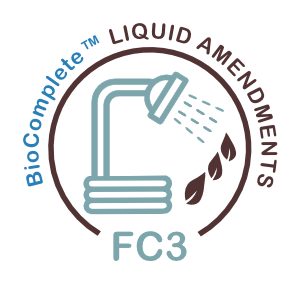
In Foundation Course 3 you will learn:
- How to produce Biological Extracts and Teas from your Biological Compost, using different types of equipment depending on the scale you are operating at.
- About the uses and application methods of Biological Extracts and Teas
- How to apply Biological Liquid Amendments to your soils using different equipment, depending on the scale of your project. And how you can use conventional spraying equipment with some minor modifications.
Foundation Course 4: Introduction to Microscopy
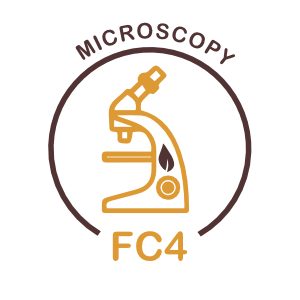
In Foundation Course 4 you will learn:
- How to correctly set-up and use a compound microscope.
- About the biological morphology of the 4 major groups of beneficial soil microorganisms.
- How to identify and quantify the key groups of beneficial microbes that all soils need in order to be fully functional, using the compound microscope. This will enable you to conduct your own soil biology assessments.
- How to process and interpret data.
- How to recognize microarthropods, algae, pollen and other objects in your soil.
Bonus Courses
Certified Lab-Tech Program
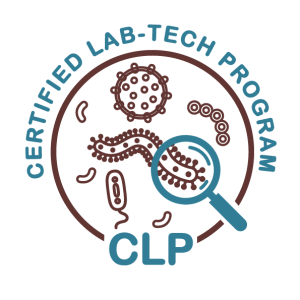
Didi Pershouse is the author of The Ecology of Care: Medicine, Agriculture, Money, and the Quiet Power of Human and Microbial Communities and Understanding Soil Health and Watershed Function. She teaches participatory workshops both in person and online, helping to show the nested relationships between soil health, human health, water cycles, and climate resiliency. She is the founder of the Land and Leadership Initiative and the Center for Sustainable Medicine, and a co-founder of the “Can we Rehydrate California?” Initiative. She is an independent trainer and curriculum developer for the UN-FAO Farmer Field School Program and the Andhra Pradesh Community Managed Natural Farming Initiative in India. She was one of five speakers at the United Nations-FAO World Soil Day in 2017.
Healthy soil is the fundamental infrastructure that makes life on land possible, but only when it is alive and functions like a sponge. A living “soil sponge” can soak up rain, store and filter water; and provide health, resilience, and thriving economies for the communities that grow from it.
Farmers and communities that create conditions for a soil sponge to grow experience interrelated benefits such as:
- Healthier crops, animals, and people
- Abundant clean water
- Cooler regional temperatures
- Reduction of wildfire risk
- Resilience to flood and drought
- Reduced erosion, dredging, and road repairs
- Higher farm profitability
- Prevention of algae blooms and dead zones
- Cleaner air
- Increased biodiversity
- Reduced conflicts over resources
- Improved local economies
- Putting atmospheric carbon to work creating landscapes that support all of life.
Topics Covered:
- Landscapes that Work for All of Life
- Collaborating with the Essential Workforce of Other Species
- Measuring Change for Long Term Success
- Money, Life, and Land
- Choosing Effective Intervention Points
Participants will gain:
- a working knowledge of whole systems landscape function
- an increased ability to evaluate land management decisions, practices, and policies
- tools to create and lead soil health initiatives in your region
- a community of practice: deep discussions with people working towards similar aims.
Participants will also have:
- A clear picture of soil’s central role in addressing current economic, social, and environmental pressures.
- A scientific understanding of the living matrix of the soil carbon sponge, and its relationship to carbon, water, and nutrient cycles.
What you’ll get with this workshop:
- Interactive peer learning environment.
- Network with other students/farmers in the group setting.
- 5 weekly sessions each lasting 2.5 hours.
Introduction to Ecosystem Restoration
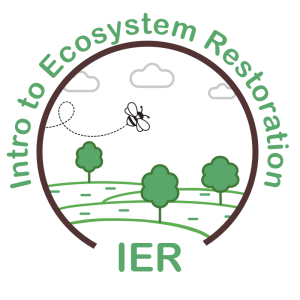
Graham is an internationally respected teacher, author and lecturer in Permaculture and other aligned disciplines over the last thirty years. He was the first person in Britain to be awarded the Diploma in Permaculture by Bill Mollison personally, in 1990. His home in the Scottish Borders with his wife Nancy boasts the longest-standing intentional food forest garden in Britain. Over a thousand visitors a year (in previous times) attest to the amazing productivity of this space.
Course Themes
- What is Permaculture?
- 12 Principles of Permaculture
- Three ethics: Earth Care, People Care, Fair Shares
- Importance of Observation
- Design Sequences
- Why do trees matter and how do they work?
- The Answer Lies in the Soil
- Cycles of Intervention
- Zones, Sectors and Throughputs
What’s Included
- 18 Lectures and Quizzes
- Downloadable Course Materials
- Certificate of Completion
Introduction to Permaculture

Graham is an internationally respected teacher, author and lecturer in Permaculture and other aligned disciplines over the last thirty years. He was the first person in Britain to be awarded the Diploma in Permaculture by Bill Mollison personally, in 1990. His home in the Scottish Borders with his wife Nancy boasts the longest-standing intentional food forest garden in Britain. Over a thousand visitors a year (in previous times) attest to the amazing productivity of this space.
Course Themes
- What is Permaculture?
- 12 Principles of Permaculture
- Three ethics: Earth Care, People Care, Fair Shares
- Importance of Observation
- Design Sequences
- Why do trees matter and how do they work?
- The Answer Lies in the Soil
- Cycles of Intervention
- Zones, Sectors and Throughputs
What’s Included
- 18 Lectures and Quizzes
- Downloadable Course Materials
- Certificate of Completion
Out of stock
